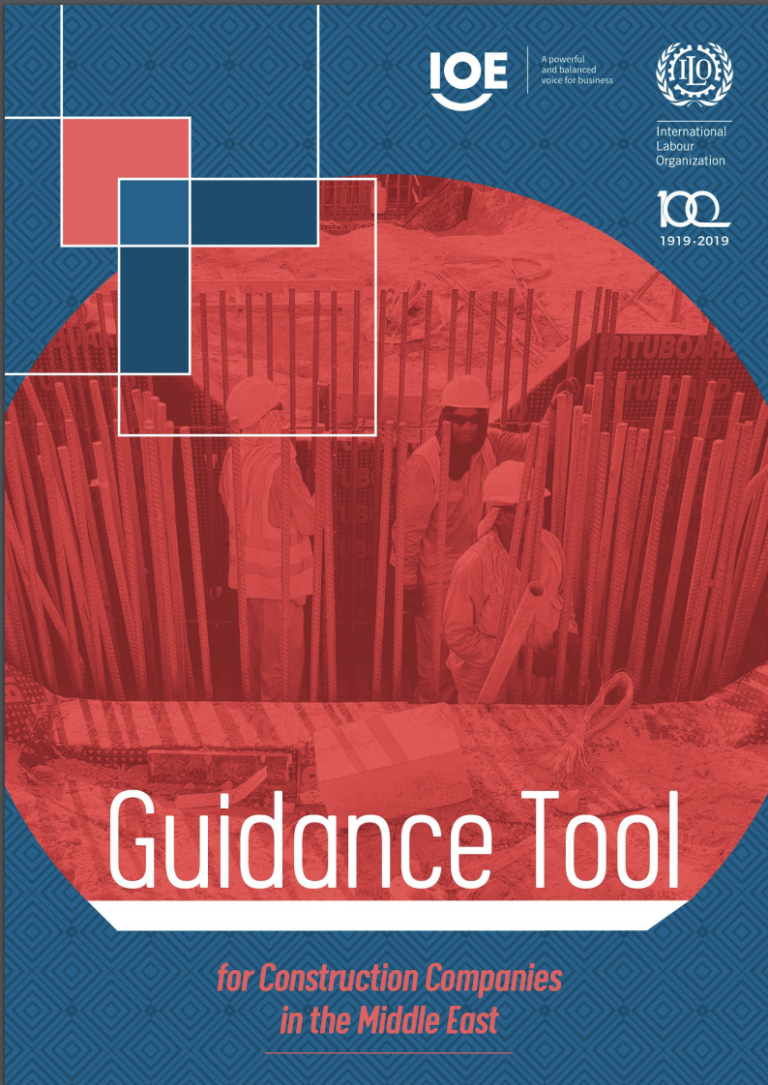In the face of shifting labour market trends within both the Middle East region and the construction sector, the ILO and IOE have identified the need for specialized resources that allow enterprises to develop internal policies and procedures that support their adherence to national and international labour laws and standards. This Guidance Tool aims to support companies engaged in the construction sector to improve their productivity, competitiveness and reputation; as well as to pursue new opportunities in an international business climate, which is increasingly focused on adequate and effective protection at work for all.
Since 1919, the ILO has been tasked with promoting labour rights, encouraging decent work opportunities and strengthening dialogue between employers, workers and governments. The ILO has a key role to play in promoting synergies and trust with the business community, to demonstrate the benefits of complying with a high level of labour standards and to demonstrate the links to improved productivity and business competitiveness.
The IOE is the largest private-sector network in the world, with more than 150 employer and business membership organization members and representing more than 50 million companies. The IOE has been recognized for its unique expertise, advocacy and influence as a powerful and balanced voice for business at the international level. The IOE has acted since its establishment as the Secretariat for the Employers’ Group in all of the ILO’s tripartite bodies. IOE provides technical and political support to the Employers’ Group in ILO governance structures and ILO meetings, including the International Labour Conference, the Governing Body, tripartite technical, sectoral and expert meetings, and regional and country-level meetings. The IOE will celebrate its 100-year anniversary in 2020.

